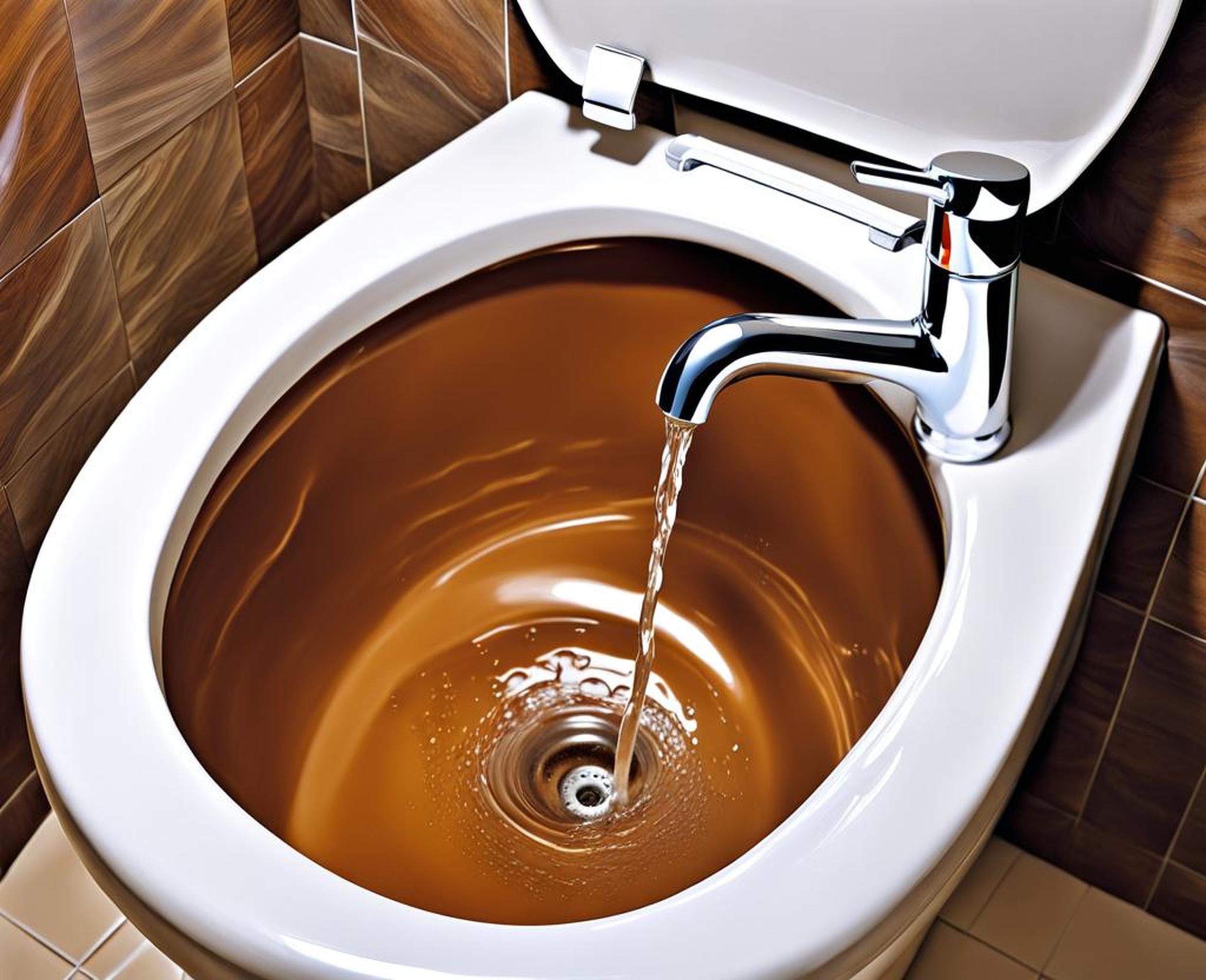If you’ve ever turned on your faucet and been startled by a rush of brown water, you’re not alone. This murky water can be alarming, leaving you to wonder if your water is still safe and what’s causing the brown color.
What Causes Brown Water from Faucets and Toilets?
There are a few main culprits behind brown water coming out of your home plumbing fixtures:
Rusty Pipes
The most common cause of brown water is corroded, rusty iron pipes. Over time, the iron pipes that transport water through your home’s plumbing system can begin to corrode. This corrosion causes rust that then flakes off into the water, staining it a brownish color.
Older homes are especially prone to having rusty pipes that can tint water brown. However, even newer pipes may develop corrosion and rust issues that lead to discolored water.
Sediment Buildup
Another cause of brown water is sediment buildup inside your pipes. Hard water areas with high mineral content are prone to sediment accumulation. Small mineral particles and limescale deposit on the inside walls of pipes over years of use.
If these mineral deposits and sediment get shaken loose, they will flow out with the water in a brown, grainy discharge.
Disturbance of Existing Sediment
In some cases, there may already be rust, mineral deposits or sediment accumulation in your water lines. But it only causes discolored water if something disturbs the settled particles and stirs them up so they suspend in the water.
Common sediment-disturbing events include:

- Water main breaks that damage lines
- Nearby fire hydrant use which stirs up minerals
- Planned water main flushing by the water company or municipality
Is Brown Water from Faucets Safe to Use?
The good news is brown water coming from your taps is generally safe to use for showering, hand washing, and other purposes outside of drinking. The discoloration itself does not make the water unsafe.
However, brown water may cause rust stains if used to wash clothing. Avoid using water with noticeable sediment or brown tint in your laundry until the issue clears up.
How to Diagnose the Cause of Brown Water
To get to the bottom of what’s causing brown water in your home, start by noting:
- Is the discoloration only happening to one faucet, or all faucets in your home?
- Did the brown water begin suddenly or has it developed gradually over time?
- Has there been any construction, water main repairs, or hydrant flushing in your area recently that could have stirred up sediment?
Your answers can provide clues into whether the cause may be isolated corrosion, general sediment buildup, or external sediment disturbance in the water lines.
How to Fix Brown Water Coming From Your Faucet
Here are some steps to try and clear up that unsightly brown water:
Flush Your Water Pipes
In many cases, running the cold water taps throughout your home for several minutes can help flush out any loose sediment or rust sitting in your pipes. Flushing at high pressure can dislodge buildup. Let the water run long enough to eventually flow clear.
Inspect and Replace Pipes if Needed
For ongoing brown water due to corrosion, have a plumber inspect your pipes to identify badly corroded sections. Replacing segments of old, corroded piping can permanently solve rust issues.
Install a Water Filtration System
If your brown water is caused by hard water sediment and mineral buildup, a water filter installed on your main home water line can remove these contaminants and restore cleaner water flow.
Check Water Pressure and Test for Lead
In some cases, brown water may result from restricted water flow due to excessive mineral deposits in pipes. Low water pressure can signal the problem. A high pressure hose flush can clear out the clog.
Additionally, lead contamination from pipes may be the culprit behind brownish water. Have your water tested to rule out dangerous levels of lead.
Preventing Brown Water from Recurring
To reduce brown water incidents in the long run:
- Periodically flush your home’s water lines to keep sediment from accumulating
- Replace old pipes that are corroding and at risk of rusting
- Use pipe sealant to prevent new pipes from becoming corroded
When to Call a Professional Plumber
If repeatedly flushing your system doesn’t resolve brown water coming from your taps, the underlying problem likely requires professional attention. Call a licensed plumber for inspection and repairs if you have persistent brown water.
While brown water from your faucets and toilet can be alarming, in most cases it is not a major plumbing emergency. With some troubleshooting and pipe maintenance, you can likely get your water flowing clean again.
But if discolored water becomes a chronic issue or fails to clear with DIY methods, get help from a professional plumber to identify and treat the root cause in your plumbing system.
